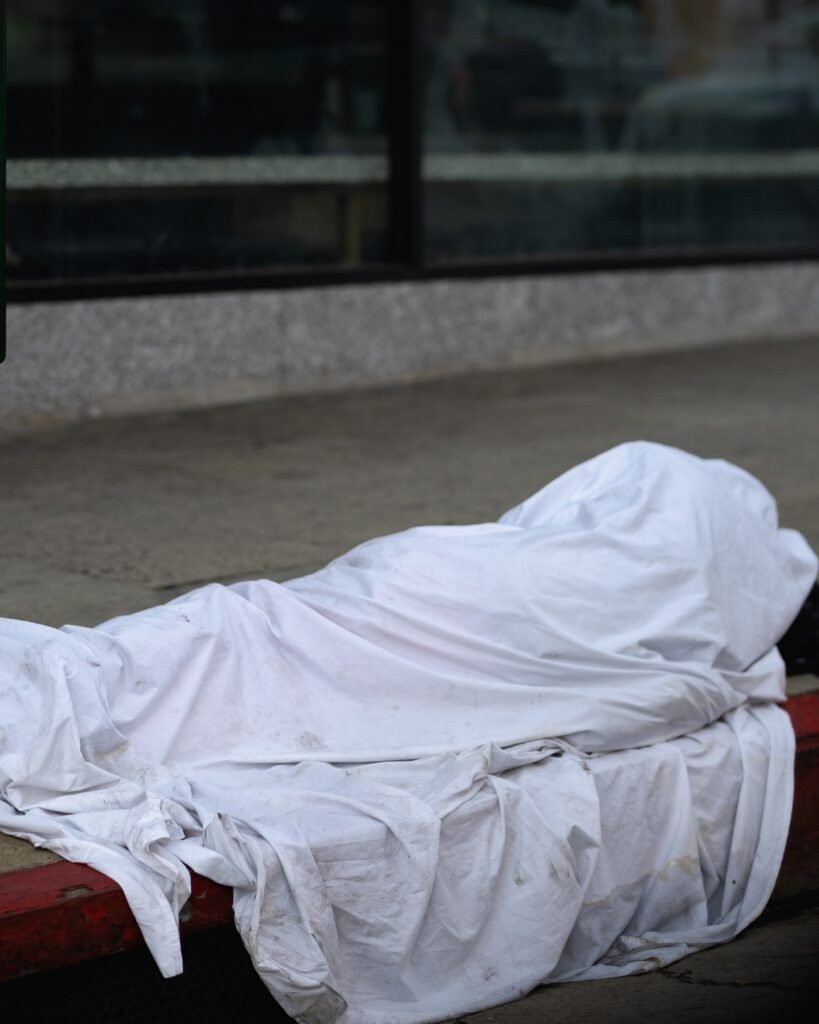For many years, mental health has been a topic that is veiled in secrecy and met with discomfort. However, it is high time we reevaluate our perspectives. In this article, we will explore the reasons behind the stigma surrounding mental health and its detrimental effects on individuals and society as a whole. It is crucial to understand that mental health is a topic that requires empathy, knowledge, and open dialogue. Let us embark on this journey together to shed light on why this stigma exists and how we can work towards breaking it down.
The History of Mental Health Stigma
Religious and Moral Beliefs
Throughout history, various religious and moral beliefs have contributed to the stigma surrounding mental health. In some religious communities, mental illness has been seen as a sign of spiritual weakness or punishment from a higher power. This perspective has often led to the marginalization and discrimination of individuals with mental health conditions. Additionally, certain moralistic views have perpetuated the notion that mental illness is a result of personal flaws or a lack of character, further fueling the stigma.
Misunderstanding and Fear
Another significant factor in the development of mental health stigma is the lack of understanding and fear associated with mental illness. In the past, mental health conditions were often misunderstood and seen as threatening or dangerous. This misunderstanding and fear have led to the isolation and mistreatment of individuals with mental health issues. A lack of knowledge regarding the causes and symptoms of mental illness has contributed to the perpetuation of stereotypes and myths surrounding mental health.
Psychiatry and Institutionalization
The emergence of psychiatry and the advent of institutionalization have also played a role in the stigmatization of mental health. Historically, individuals with mental health conditions were often confined to asylums and hospitals, removed from society due to their perceived inability to function. This separation from the general population led to further exclusion and dehumanization. The mistreatment and abuses that occurred within these institutions have contributed to the negative perceptions surrounding mental health.
Societal Influence on Mental Health Stigma
Cultural Norms and Expectations
Cultural norms and expectations play a significant role in dictating how mental health is perceived and discussed in society. In many cultures, mental illness is still viewed as a source of shame and embarrassment, leading individuals to hide their struggles and avoid seeking help. Societal pressure to conform to certain standards of mental well-being can make it difficult for individuals to speak openly about their experiences, contributing to the perpetuation of stigma.
Media Representation
The media’s portrayal of mental health has had a profound effect on public attitudes and perceptions. Unfortunately, media often depicts individuals with mental health conditions in a negative light, focusing on sensationalized stories that perpetuate stereotypes and reinforce stigmatizing beliefs. This distorted representation cultivates fear and misunderstanding, making it challenging for individuals to seek support and understanding.
Lack of Knowledge and Education
A lack of knowledge and education surrounding mental health issues has also played a role in the persistence of stigma. Without proper education, individuals may struggle to understand the complexities of mental health and mistakenly attribute it to personal weakness or character flaws. By promoting awareness and providing accurate information, societies can work towards breaking down barriers and fostering a more empathetic and supportive environment.

Impact of Stigma on Individuals
Self-Stigma and Shame
Stigma surrounding mental health can take a significant toll on individuals, often resulting in self-stigma and feelings of shame. When society attaches negative labels and stereotypes to mental illness, individuals may internalize these beliefs, blaming themselves for their condition and feeling ashamed of seeking help. This self-stigma can prevent individuals from seeking the support they need and can also lead to feelings of isolation and low self-esteem.
Barriers to Seeking Help
Stigma creates various barriers that hinder individuals from seeking help for their mental health concerns. Fear of judgment and discrimination can discourage individuals from reaching out to healthcare professionals or seeking therapy. The fear of being labeled as “crazy” or “weak” can prevent individuals from being open about their struggles, potentially resulting in delayed or inadequate treatment. These barriers prolong suffering and prevent individuals from receiving the care they deserve.
Discrimination and Social Exclusion
Stigma surrounding mental health can lead to discrimination and social exclusion in various areas of life. Individuals with mental health conditions may face discrimination when seeking employment, housing, or educational opportunities, due to misconceptions about their abilities or reliability. This discrimination further marginalizes individuals and can contribute to a cycle of poverty and isolation. The fear of being judged or rejected by friends, family, or peers can also lead to social exclusion, deepening feelings of loneliness and despair.
Stigma Within Healthcare Systems
Biases and Stereotypes
Even within healthcare systems, biases and stereotypes about mental health can perpetuate stigma and hinder effective treatment. Healthcare professionals may hold unconscious biases that impact the quality of care they provide to individuals with mental health conditions. These biases can result in delayed diagnoses, inappropriate treatment, or a lack of empathy and understanding. Addressing these biases is crucial for creating an inclusive healthcare environment that supports individuals’ mental well-being.
Inadequate Training and Resources
A lack of adequate training and resources for healthcare professionals can contribute to the perpetuation of stigma within healthcare systems. Without proper education on mental health, healthcare providers may struggle to effectively assess and treat individuals with mental health conditions. Additionally, limited access to mental health services and long wait times for appointments can pose significant barriers to individuals seeking timely and appropriate care, ultimately perpetuating the stigma surrounding mental health.
Lack of Integration
Another challenge within healthcare systems is the lack of integration between mental health services and other areas of healthcare. Mental health is often treated as separate from physical health, leading to fragmented care and limited coordination between different healthcare providers. This segregation reinforces the idea that mental health is less important or less valid than physical health, perpetuating the stigma surrounding mental illness.

Role of Language and Terminology
Negative Labels and Stereotypes
The use of negative labels and stereotypes in conversations about mental health significantly contributes to the stigma surrounding mental illness. The casual use of terms like “crazy,” “psycho,” or “insane” perpetuates harmful stereotypes and undermines the experiences of individuals with mental health conditions. By using more respectful and person-centered language, we can challenge stigmatizing beliefs and foster empathy and understanding.
Misuse of Diagnostic Terminology
Misuse or misrepresentation of diagnostic terminology can also contribute to the stigma surrounding mental health. When diagnostic terms are improperly used or misinterpreted, they can perpetuate misconceptions and encourage stigmatizing views. It is essential for professionals and the general public to have a clear understanding of diagnostic terminology to avoid further marginalizing individuals with mental health conditions.
Empowering Language and Recovery-Focused Terms
On the other hand, the use of empowering language and recovery-focused terms can help reduce stigma and promote a more supportive discourse around mental health. By emphasizing the potential for growth, resilience, and recovery, we can challenge negative perceptions and inspire hope. Encouraging discussions that focus on the strengths and abilities of individuals with mental health conditions can promote self-acceptance and foster understanding in society.
Effects on Vulnerable Populations
Children and Adolescents
Stigma surrounding mental health can be particularly harmful to children and adolescents. The fear of judgment and rejection may prevent young individuals from seeking help or discussing their struggles openly. The stigma can lead to feelings of isolation and alienation, contributing to the development of more severe mental health issues. By creating safe and supportive environments and promoting mental health literacy among young individuals, we can work towards breaking down stigma and fostering resilience.
Minorities and Ethnic Communities
Minority and ethnic communities often face unique challenges when it comes to mental health stigma. Cultural beliefs and traditions may shape perceptions of mental health and discourage individuals from seeking support. Language barriers, discrimination within healthcare systems, and limited access to culturally sensitive services can further perpetuate stigma and contribute to disparities in mental health care outcomes. It is crucial to address the specific needs of these communities and ensure access to appropriate and inclusive mental health support.
LGBTQ+ Individuals
The LGBTQ+ community is particularly vulnerable to mental health stigma due to the intersection of multiple identities and social prejudices. LGBTQ+ individuals face higher rates of mental health conditions due to the discrimination, rejection, and lack of acceptance they often experience. Stigmatizing views and biases within society and healthcare systems can compound these challenges, making it difficult for individuals to access appropriate care. Creating safe spaces and promoting acceptance and inclusivity is critical in combating the stigma faced by LGBTQ+ individuals.

The Role of Policy and Legislation
Legal Barriers and Discrimination
Legal barriers and discrimination contribute significantly to the stigma surrounding mental health. Laws and policies that discriminate against individuals with mental health conditions can prevent them from accessing vital resources, services, and opportunities. Legal protections are necessary to ensure equal rights, opportunities, and treatment for individuals with mental health conditions, challenging the stigmatizing beliefs and practices that have perpetuated throughout history.
Promoting Mental Health Equality
Promoting mental health equality requires comprehensive policies and legislation that prioritize mental health as an essential component of overall well-being. This includes providing adequate funding and resources for mental health services, integrating mental health care into primary healthcare systems, and implementing anti-stigma campaigns. By investing in mental health infrastructure and ensuring equal access to care, societies can reduce stigma and promote mental health equality for all.
Campaigns and Awareness Efforts
Public awareness campaigns play a crucial role in challenging mental health stigma and changing societal attitudes. These campaigns aim to educate the public, challenge negative perceptions, and promote empathy and understanding. By sharing personal stories, highlighting the impact of stigma on individuals and society, and providing accurate information, campaigns can effectively debunk myths, encourage help-seeking behavior, and foster a more supportive environment.
Reducing Stigma through Education and Awareness
Communities and Schools
Community and school-based programs are essential in reducing mental health stigma and promoting education and awareness. These programs can provide resources, workshops, and support groups that promote mental health literacy and destigmatize mental illness. By engaging with the community, including parents, teachers, and community leaders, we can create a network of support that encourages open conversations and acceptance.
Media and Entertainment Industry
The media and entertainment industry plays a significant role in shaping public perceptions and attitudes towards mental health. By portraying mental health issues accurately and sensitively, the industry can challenge stereotypes and reduce stigma. Consistently representing individuals with mental health conditions as complex, resilient, and relatable characters can encourage empathy and understanding among the general public.
Mental Health Literacy Programs
Implementing mental health literacy programs in schools and workplaces is crucial in reducing stigma and promoting a culture of understanding and support. These programs provide individuals with knowledge and skills to recognize and respond to mental health concerns. By increasing mental health literacy, we can create environments where individuals feel safe to discuss their mental health openly and seek appropriate help when needed.
Importance of Peer Support and Advocacy
Sharing Personal Experiences
Peer support and advocacy are powerful tools in reducing mental health stigma. When individuals share their personal experiences with mental health, it humanizes the condition and challenges stigmatizing beliefs. By openly discussing their struggles, individuals can inspire others to seek help, promote self-acceptance, and foster a sense of community and support.
Fostering Empathy and Understanding
Building empathy and understanding is crucial in combating mental health stigma. By fostering empathy, individuals can recognize and validate the experiences of those with mental health conditions, reducing judgment and discrimination. Engaging in open and compassionate conversations, actively listening, and seeking to understand can break down barriers and promote a more empathetic society.
Social Media and Online Communities
Social media and online communities have become powerful platforms for peer support and advocacy. These platforms provide spaces where individuals can share their experiences, find support, and connect with others who may be going through similar challenges. By utilizing social media responsibly and fostering supportive online communities, we can combat stigma, promote understanding, and reach a broader audience.
Promoting Positive Mental Health
Normalizing Mental Health Conversations
Promoting positive mental health requires normalizing conversations around mental health. By discussing mental health in the same manner as physical health, we can create an environment where mental well-being is valued and prioritized. Encouraging open conversations about emotions, stress, and mental health challenges can contribute to a more supportive and inclusive society.
Encouraging Help-Seeking Behavior
Encouraging help-seeking behavior is vital in promoting positive mental health. Society needs to emphasize that seeking support is a sign of strength and that mental health care is essential. By providing accessible and affordable mental health services, reducing wait times for appointments, and eliminating financial barriers, individuals are more likely to seek help when needed, leading to better overall well-being.
Creating Supportive Environments
Creating supportive environments is crucial in promoting positive mental health and reducing stigma. Employers, educational institutions, and community organizations can develop policies and initiatives that prioritize mental well-being. These initiatives may include flexible work schedules, mental health resources, and anti-stigma training. By fostering supportive environments, individuals are more likely to feel valued, accepted, and empowered to prioritize their mental health.
